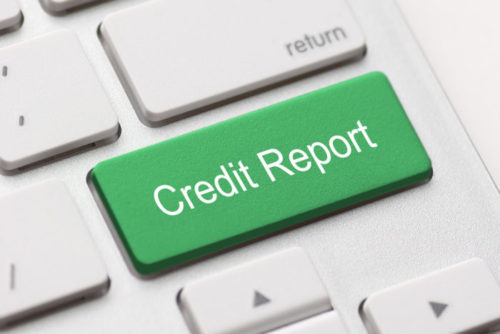Banks, lenders, and credit card companies look at your credit report when making a decision about your credit application. There are three major credit bureaus, Equifax, TransUnion, and Experian, that compile data on your financial history and issue a credit score. They sell this data to lenders who are deciding whether to grant you a loan.

The Free and Accurate Credit Transactions Act of 2003 (FACTA) allows consumers to access their credit reports for free at least once per year. The government officially sanctioned one website where you can gain access to your report. You may also be able to get free reports from each of the credit bureaus.
Additionally, some personal finance companies offer limited free access to some of the data in your credit report during free trial periods.
With all these options, it is now quite easy to get your credit report, if you know where to look.
Table of Contents
Can You Get a Free Credit Report?
You can gain access to a credit report for free thanks to FACTA. However, you need to go through the proper channels to get the free report.
Some third-party services offer access to free credit reports or free credit score information. However, they require that you sign up for a free trial of their personal finance services before giving you the report.
If you do not cancel the service before the end of the trial, which may only last a few days or weeks, you may have to pay the monthly subscription fees for ongoing credit reports or credit monitoring services.
The Federal Trade Commission tried to prevent this trick by requiring sites that offer free credit reports to explicitly warn consumers that the only authorized place they could get their credit reports was AnnualCreditReport.com.
However, many companies got around this by instead charging a nominal fee (usually $1) for the credit report. That way, they aren’t strictly free, and they don’t have to give any warnings.
Rather than figuring out how to tell whether a site is legit, it is better to know which particular sites are safe and access your report from those places exclusively.
Since FACTA passed in 2003, you are entitled to getting a free annual credit report from AnnualCreditReport.com, the only site officially approved by the FTC. There are a few other options that, although they are not official, are still safe and legitimate.
State Credit Report Laws
State laws can also impact the number of times you’re able to access a credit report each year. However, the rules differ from state to state. Some state laws allow you to get additional free credit reports, while others require that credit bureaus provide additional reports at a reduced rate.
In Georgia, for example, you can get two free credit reports per year. While in Maryland, the cost for a second annual report is $5.
Even if your state does not have extra free credit reports, you can get more than one per year if you plan correctly. You’re allotted one free credit report from each of the three bureaus, so you can space the three out through the year to get more than one free report.
Where to Get Free Credit Reports
Although this list is non-exhaustive, these are the primary options for getting free credit reports.
AnnualCreditReport.com
AnnualCreditReport.com offers you a copy of your credit report from all three bureaus: TransUnion, Equifax, and Experian. To get your report, visit the site and order it (from one, two, or all three firms). You need to provide your name, address, and Social Security number, answer three security questions, and select the reports that you want.
This site is the only place to get access to all three major reports in one place. It is also the only credit report access site sanctioned by the federal government. For these reasons, it is the safest option for getting your credit report.
You should consider getting reports from all three bureaus, because each one has a slightly different approach to compiling reports and scores.
TransUnion
The TransUnion credit report is free once per year at AnnualCreditReport.com. Additional credit reports and credit scores are for sale on the TransUnion website.
TransUnion, like the other two major credit bureaus, generates a variety of scores, including FICO scores, VantageScores, business scores, and company-specific educational scores. The specific credit score offered for sale by TransUnion is an educational score and may not be the same figure creditors see. The score ranges from 300 to 850.
Experian
Experian offers credit reports and scores for sale on its website in addition to the free Experian report through AnnualCreditReport.com. There are special cases where you may get your Experian credit report and score for free from Experian.
For example, when a lender uses your Experian report to deny your loan application, Experian will provide you with a free copy to see what happened.
Experian uses a FICO 8 score for credit scores. This score ranges from 300 to 850 and is the same score that lenders see when they order your report from Experian.
Equifax
Equifax offers credit reports and scores for sale on its website, though you may get a free credit report from Equifax if you have a myEquifax account. The easiest way to get a free Equifax credit report, however, is on AnnualCreditReport.com.
Equifax reports include both VantageScores and FICO scores. The most current scores range from 300 to 850. Like TransUnion, Equifax calculates your score according to different scoring models. The score you get on their website may not use the same scoring model as the score for creditors.
Credit Karma
Credit Karma gives you free credit reports from TransUnion and Equifax when you sign up. These reports are updated weekly, and you may check them as often as you want.
The service also shows you credit scores from the two credit bureaus with a detailed breakdown of what factors may impact your score.
So how does Credit Karma manage to do all this for free? Credit Karma makes money from advertising revenue, especially when users take offers from their advertising partners.
What to Do With Your Free Credit Report
There are a few areas you should pay attention to when you read your credit report:
- Check your identifying information to make sure it is accurate. The addresses for past and present locations should be valid. You can correct mistakes if needed, but inaccurate addresses could also be a sign of identity theft. The credit report bureaus rely on lenders to report your transactions, so inaccurate or incomplete information could be the result of a reporting mistake by the lender.
- Check your credit history. Read it thoroughly to make sure the information is accurate. Look for any unfamiliar accounts or payments that get listed as late when they were on time. All credit accounts you’ve closed should show up as closed, and no accounts you haven’t opened should show up as open.
- The Public Records section should ideally be blank. Unless you remember being in such a situation, there shouldn’t be any bankruptcies, tax liens, or delinquent accounts listed.
- Check the Inquiries section to find out if there are any hard inquiries for applications that you did not prepare yourself or authorize. Unauthorized inquiries are another sign of ID theft.
- Analyze the report to see if there is a pattern of mistakes. You can use this information to think about how you can improve your credit habits. You may even employ the services of a credit repair company to help you through this effort.
- In case there is inaccurate information on the report, or hard inquiries that you did not consent to, gather up supporting documents to prove your case and send them to the credit bureau along with a return receipt. They should respond within 30 days.
Image Source: https://depositphotos.com/






